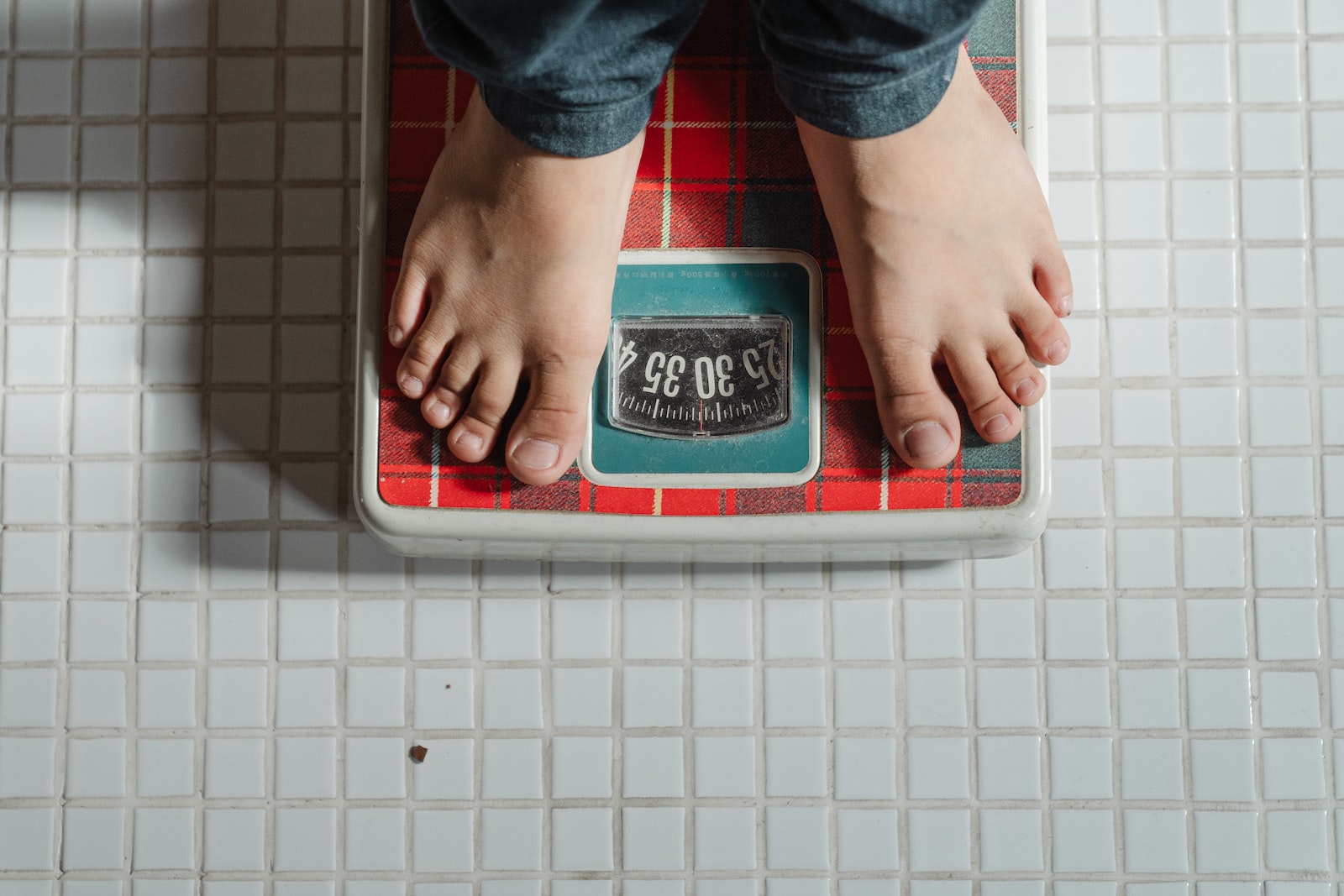Are you struggling to lose weight? It might be time to focus on the quality and quantity of your sleep. Many people underestimate the importance of sleep when it comes to weight loss, but the truth is, getting a good night’s rest can significantly impact your waistline. In this Blog post, we’ll explore the surprising link between sleep and weight loss and provide tips and recommendations for losing weight while sleeping, including how to lose weight while sleeping and why it’s possible.
How to Lose Weight While Sleeping
 Before we dive into how to lose weight while sleeping, let’s first understand the science behind the relationship between sleep and weight loss.
Before we dive into how to lose weight while sleeping, let’s first understand the science behind the relationship between sleep and weight loss.
During sleep, our bodies undergo several hormonal changes that impact metabolism.
One of these hormones is leptin, which controls hunger and appetite.
When we don’t get enough sleep, our bodies produce less leptin, making us feel hungrier and more likely to overeat.
Another hormone affected by sleep is ghrelin, which stimulates appetite.
When we are sleep deprived, our bodies produce more ghrelin, increasing our hunger levels and making it harder to resist unhealthy foods.
Furthermore, deep sleep is crucial for weight loss as it triggers the release of growth hormone, which helps build and repair muscle tissue.
The Connection Between Sleep Deprivation and Weight Gain
 If you’re wondering how to lose weight while sleeping, it’s important to prioritize getting enough rest each night.
If you’re wondering how to lose weight while sleeping, it’s important to prioritize getting enough rest each night.
Studies have shown that people who sleep less tend to weigh more.
When we are sleep deprived, we tend to make poor food choices and reach for high-calorie, high-fat foods.
This is because sleep deprivation affects the brain’s reward center, making unhealthy foods more appealing.
Additionally, lack of sleep slows down our metabolism, making it harder for our bodies to burn calories.
So, if you want to lose weight while you sleep, make sure you prioritize getting enough sleep each night to avoid the negative effects of sleep deprivation on your weight loss goals.
Foods That Promote Sleep and Weight Loss
 The good news is that certain foods can promote both sleep and weight loss.
The good news is that certain foods can promote both sleep and weight loss.
If you’re wondering how to lose weight while sleeping, Foods that contain tryptophan, an amino acid that helps produce serotonin, promote relaxation and sleep.
These foods include turkey, chicken, bananas, and nuts. Foods high in magnesium, such as spinach, pumpkin seeds, and almonds, also help promote relaxation and sleep.
Eating foods that promote satiety can also aid in weight loss.
These include high-fiber foods like fruits, vegetables, and whole grains, as well as lean proteins like chicken, fish, and beans.
The Best Sleeping Positions for Weight Loss
 Believe it or not, the position you sleep in can affect your weight.
Believe it or not, the position you sleep in can affect your weight.
If you’re wondering how to lose weight while sleeping, sleeping on your back can improve digestion and reduce the likelihood of snoring, which can disrupt sleep quality.
Alternatively, sleeping on your side with a pillow between your legs can alleviate back pain and improve sleep quality.
The Importance of Sleep Hygiene
 If you’re wondering how to lose weight while sleeping, establishing a consistent sleep routine and creating a sleep-conducive environment are essential for good sleep hygiene.
If you’re wondering how to lose weight while sleeping, establishing a consistent sleep routine and creating a sleep-conducive environment are essential for good sleep hygiene.
This means going to bed and waking up at the same time each day, avoiding caffeine and electronics before bed, and keeping your bedroom cool, dark, and quiet.
Supplements for Sleep and Weight Loss
 Certain natural supplements can improve sleep quality and aid in weight loss.
Certain natural supplements can improve sleep quality and aid in weight loss.
If you’re wondering how to lose weight while sleeping, Melatonin, a hormone that regulates sleep, can help improve sleep quality and quantity.
Other supplements like valerian root and chamomile have been shown to promote relaxation and sleep.
It’s important to note that supplements can have side effects and may interact with other medications.
Always consult with a healthcare professional before taking any new supplements.
Sleep Disorders That Affect Weight Loss
 Sleep disorders like sleep apnea and insomnia can impact weight loss.
Sleep disorders like sleep apnea and insomnia can impact weight loss.
Sleep apnea, a condition where breathing is disrupted during sleep, can lead to metabolic changes and weight gain.
Insomnia, the inability to fall or stay asleep, can affect hormones that control appetite and metabolism.
If you suspect you have a sleep disorder, speak with a healthcare professional.
Treatment for sleep disorders can improve sleep quality and aid in weight loss.
Sleep and Exercise
 When it comes to losing weight while sleeping, exercise is a key component.
When it comes to losing weight while sleeping, exercise is a key component.
If you’re wondering how to lose weight while sleeping, regular exercise can improve sleep quality, making it easier to fall asleep and stay asleep.
Exercise also increases metabolism, which can help with weight loss.
It is important to note, however, that the timing of exercise can affect sleep quality.
Exercising too close to bedtime can make it harder to fall asleep due to increased alertness and raised body temperature.
Therefore, it is recommended to exercise earlier in the day, preferably in the morning or afternoon.
This allows the body enough time to cool down and return to a state of relaxation before bedtime.
The Role of Stress and Sleep in Weight Loss
 Stress can have a significant impact on both sleep quality and weight loss.
Stress can have a significant impact on both sleep quality and weight loss.
When we are stressed, our bodies release cortisol, a hormone that can disrupt sleep and increase appetite.
This can lead to overeating and weight gain.
To combat stress, it is important to find ways to relax and unwind before bedtime.
This can include meditation, deep breathing exercises, or taking a warm bath.
Incorporating stress-reducing techniques into your daily routine can help improve sleep quality and aid in weight loss.
Sleep Tracking Devices for Weight Loss
![]() Sleep tracking devices have become increasingly popular in recent years, and for good reason.
Sleep tracking devices have become increasingly popular in recent years, and for good reason.
If you’re wondering how to lose weight while sleeping, these devices can provide valuable insights into sleep patterns and help identify potential areas for improvement.
Some popular sleep tracking devices include Fitbit, Garmin, and Apple Watch.
These devices can track metrics such as total sleep time, sleep stages, and heart rate variability.
By analyzing this data, users can make adjustments to their sleep habits and improve sleep quality.
It is important to note, however, that sleep tracking devices are not foolproof.
They can be affected by factors such as movement or placement on the body, and may not always provide accurate readings.
Therefore, it is important to use these devices in conjunction with other methods of improving sleep quality.
Sleep and Intermittent Fasting
 Intermittent fasting has become a popular weight loss strategy in recent years.
Intermittent fasting has become a popular weight loss strategy in recent years.
This approach involves restricting food intake to a specific window of time, typically 8-10 hours per day.
By doing so, the body enters a state of ketosis, in which it burns stored fat for energy.
While intermittent fasting can be an effective weight loss strategy, sleep quality can also play a role in its success.
If you’re wondering how to lose weight while sleeping, research has shown that sleep deprivation can disrupt the hormonal changes that occur during fasting, leading to decreased fat burning and increased muscle breakdown.
To maximize the benefits of intermittent fasting, it is important to prioritize sleep and ensure that you are getting enough rest each night.
Conclusion
Losing weight while sleeping may seem too good to be true, but with the right strategies in place, it is possible.
By understanding the science behind sleep and weight loss, as well as implementing healthy sleep habits and stress-reducing techniques, you can improve sleep quality and aid in weight loss.
So, if you’re wondering how to lose weight while sleeping, remember that it’s a combination of various factors and there’s no one-size-fits-all solution.
It may take some trial and error to find the strategies that work best for you.
However, by staying consistent and committed, you can achieve your weight loss goals and wake up feeling refreshed and energized each morning.
In the next blog post, we will discuss The Shocking Link Between Stress and Weight Gain: 3 Ways to Manage It.
Are you tired of struggling with weight loss despite all your efforts?
Now that you've discovered that sleep plays a vital role in regulating your metabolism and overall health, you can take this knowledge a step further with the revolutionary PrimaJust weight loss method.
By addressing the underlying factors that hinder your metabolism, PrimaJust empowers you to achieve all-natural weight loss effortlessly.
No more restrictive diets or strenuous exercises!
Unlock the secret to your metabolism and experience the remarkable transformation of losing 1-3 pounds per week automatically.
Don't miss out on this opportunity!
Download our still free report today and embark on your journey to a healthier, fitter you!
[Source]Free Report
Want to learn more and effortlessly start losing weight without dieting or exercising? Click here to schedule your free Weight Loss Clarity Call today, while it’s still free.
Change your mindset with these thought-provoking related blog posts
-
Ozempic for Weight Loss: Bold US Seeker Dive into Canada & Mexico
Ozempic for weight loss has become a widely discussed topic in the United States, as…
-
The weight-loss danger that many people don't want to hear
Many foods today contain certain substances supposedly approved by the FDA. You also find lots…













